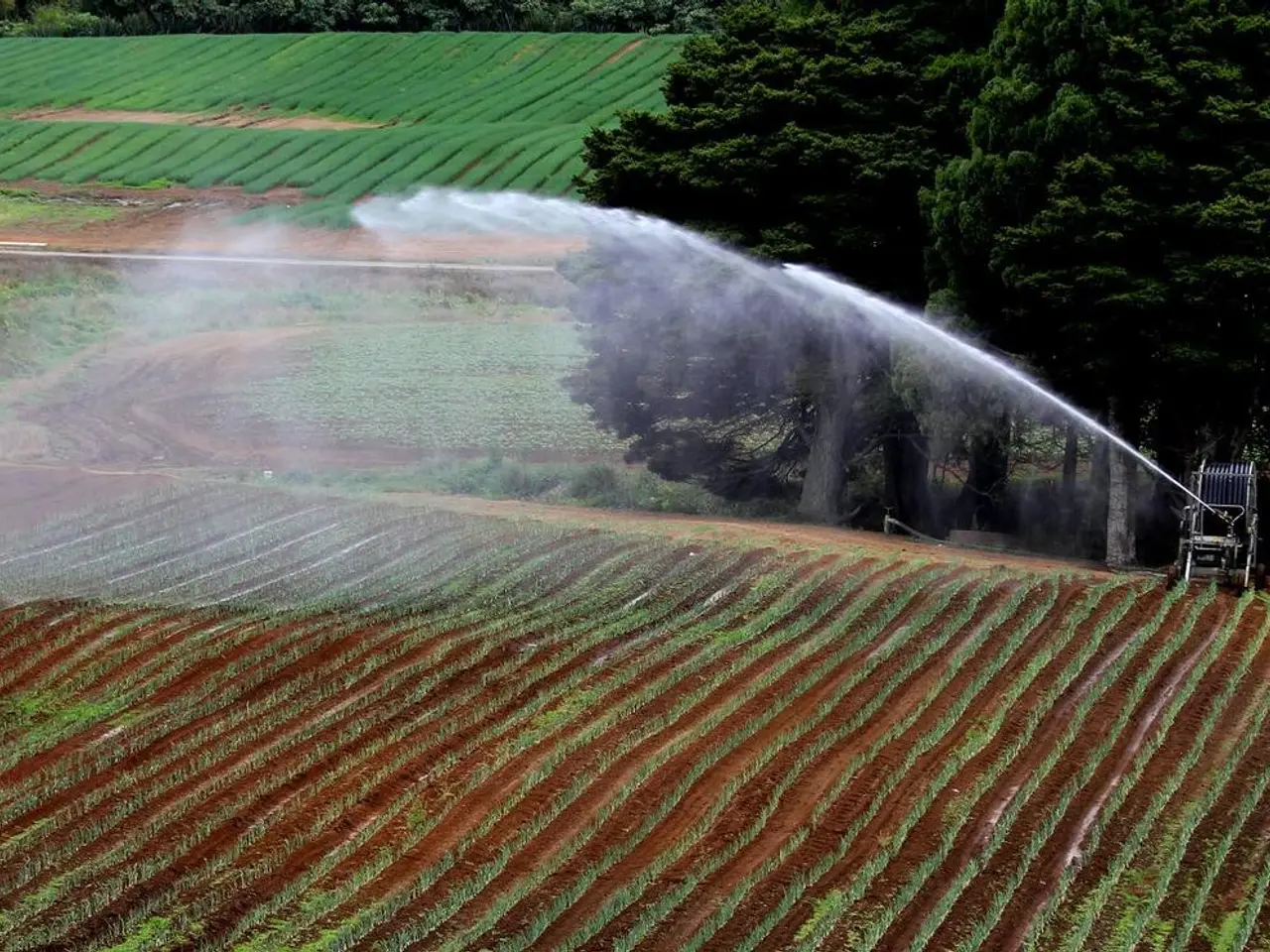Biochar fertiliser initiatives in Vietnam and Cambodia are supported by the DFCD, with a focus on expanding HUSK's biochar solutions.
HUSK, a regenerative agriculture company, is set to expand its biochar-based fertilizer solutions in Vietnam and Cambodia, thanks to funding support from the Dutch Fund for Climate and Development (DFCD) and SNV. This expansion aims to help farmers improve soil health, increase climate resilience, and transition away from synthetic fertilizers by converting rice husk waste into biochar-based regenerative agricultural products[1][3].
The DFCD, managed by a consortium consisting of Climate Fund Managers (CFM), Worldwide Fund for Nature Netherlands (WWF-NL), SNV, and the Dutch Entrepreneurial Development Bank, FMO, is providing grant funding to HUSK. The grant will help prepare HUSK for future investment in biochar expansion[2].
HUSK’s impact includes sustainable soil regeneration and enhanced climate mitigation benefits for smallholder farmers in these countries. The project supports the reduction of synthetic fertilizer use, which contributes to greenhouse gas emissions, and promotes a circular economy model by utilizing discarded agricultural residues like rice husks[1][3].
The expansion plan involves scaling HUSK’s soil health solutions throughout Vietnam and Cambodia, where rice farming is prevalent, thus enabling broader adoption of biochar fertilization for improved crop productivity and environmental outcomes[1][3]. SNV, a development organization, also supports this initiative, reinforcing international collaboration to advance sustainable agriculture practices in Southeast Asia[1].
The grant will fund field trials with leading universities in Vietnam and Cambodia, as well as support market adoption pilots with farming communities in Vietnam[2]. HUSK started operations in Cambodia in 2019 and has a track record of university-led field trials, long-term mill partnerships, and growing interest from agri-businesses and farmer groups[3].
The support from the DFCD will help HUSK scale its operations in both Vietnam and Cambodia. This effort aligns with broader regional strategies pushing green and sustainable transformation in agriculture, which includes government promotion of eco-industrial innovations and climate-smart technologies to support resilient food systems[2].
It's worth noting that Mekong Enterprise Fund IV has announced it will invest $5 million in HUSK, and DFI Retail Group has launched a low-carbon rice pilot to cut GHG emissions by 30%. HUSK's biochar-based fertilizers rebuild soil health, store carbon, and improve soil structure and chemistry[3].
The project builds on SNV's prior engagement with HUSK through the Innovations Against Poverty (IAP) programme in Cambodia[1]. This collaboration underscores the commitment of DFCD to unlocking finance for inclusive, climate-resilient solutions, and the potential of regenerative agriculture to contribute to climate adaptation and economic sustainability in these countries.
[1] https://www.snvworld.org/news/husk-secures-funding-support-to-expand-its-biochar-based-fertiliser-solutions-in-vietnam-and-cambodia [2] https://www.dfcd.nl/en/news-and-events/news/husk-secures-funding-support-to-expand-its-biochar-based-fertiliser-solutions-in-vietnam-and-cambodia [3] https://www.snvworld.org/news/husk-secures-funding-support-to-expand-its-biochar-based-fertiliser-solutions-in-vietnam-and-cambodia-2
- Science plays a crucial role in HUSK's expansion of biochar-based fertilizer solutions, as field trials with universities in Vietnam and Cambodia will be funded by the DFCD grant.
- This investment in HUSK's biochar expansion aims not just to help farmers improve soil health and increase climate resilience, but also to promote a circular economy model by utilizing discarded agricultural residues like rice husks.
- The DFCD grant will not only prepare HUSK for future investments but also reinforces international collaboration to advance sustainable agriculture practices in Southeast Asia, as demonstrated by SNV's support.
- In the realm of health-and-wellness, HUSK's impact includes sustainable soil regeneration and enhanced climate mitigation benefits for smallholder farmers, which indirectly contributes to their overall wellbeing.
- The housing market and real-estate sectors could potentially benefit from HUSK's scaling operations, as green and sustainable transformations in agriculture align with government promotion of eco-industrial innovations and climate-smart technologies.
- Upon the success of the project, HUSK's biochar-based fertilizers may offer a viable solution for the food-and-drink industry's requirement of sustainable living, contributing to the reduction of synthetic fertilizer use and greenhouse gas emissions.
- In the broader context of environmental-science, HUSK's efforts to rebuild soil health, store carbon, and improve soil structure and chemistry are significant steps towards addressing climate change and promoting sustainable living.
- For those interested in finance and investing, the $5 million investment by Mekong Enterprise Fund IV and the low-carbon rice pilot by DFI Retail Group indicate a growing market interest in HUSK's biochar-based fertilizers and the potential for financial returns in the sector of data-and-cloud-computing and technology-driven sustainable agriculture solutions.




